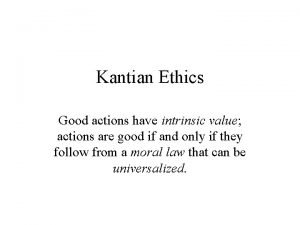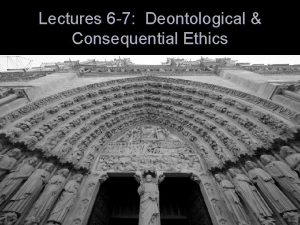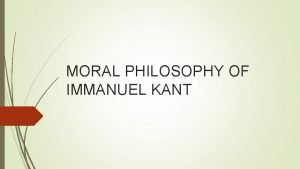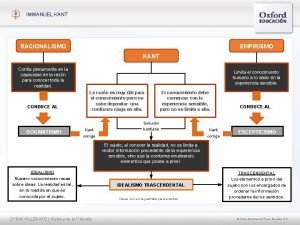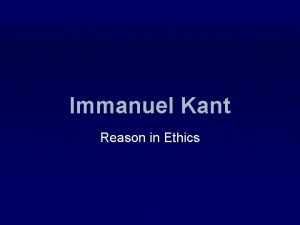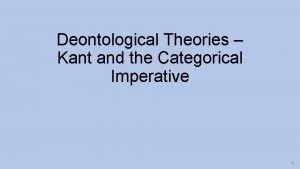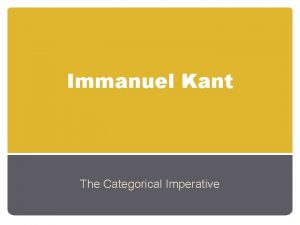Immanuel Kant Deontological Ethics Kant Rejects Utilitarianism Does









- Slides: 9

Immanuel Kant Deontological Ethics

Kant Rejects Utilitarianism Does not deny that we seek pleasure and avoid pain, but rejects the notion that pleasure and pain are our sovereign masters. Instead emphasizes our autonomy (freedom) and rationality, because it is these which render dignity to each person, and dignity demands respect.

Kant’s Conception of Freedom Autonomy To act freely To act according to a law I give myself Heteronomy To act according to desires I haven’t chosen myself

Kant’s Conception of Morality The moral worth of an action depends upon motive, i. e. doing the right thing for the right reason

“A good will isn’t good because of what it effects or accomplishes, it’s good in itself. Even if by utmost effort the good will accomplishes nothing it would still shine like a jewel for its own sake as something which has its full value in itself. ” Immanuel Kant

Three Contrasts Morality Motives: Freedom Determination of Will: Reason Imperatives: Duty versus Inclination Autonomy versus Heteronomy Categorical versus Hypothetical

Categorical vs. Hypothetical Imperatives Hypothetical imperatives are generally distinguished by being a) interest or goal related; b) avoidable; and c) individualized, not universal. Categorical Imperatives are commands which are independent of an individual person’s interests or goals and are hence a) not interest or goal related; b) unavoidable; and c) universal.

Formula of the Universal Law “act only on that maxim (a rule or principle that gives reason to your action) that you can will as a universal law. ”

Formula of humanity as an end “Act in such a way that you always treat humanity, whether in your own person or in the person of any other, never simply as a means, but always at the same time as an end. ”

